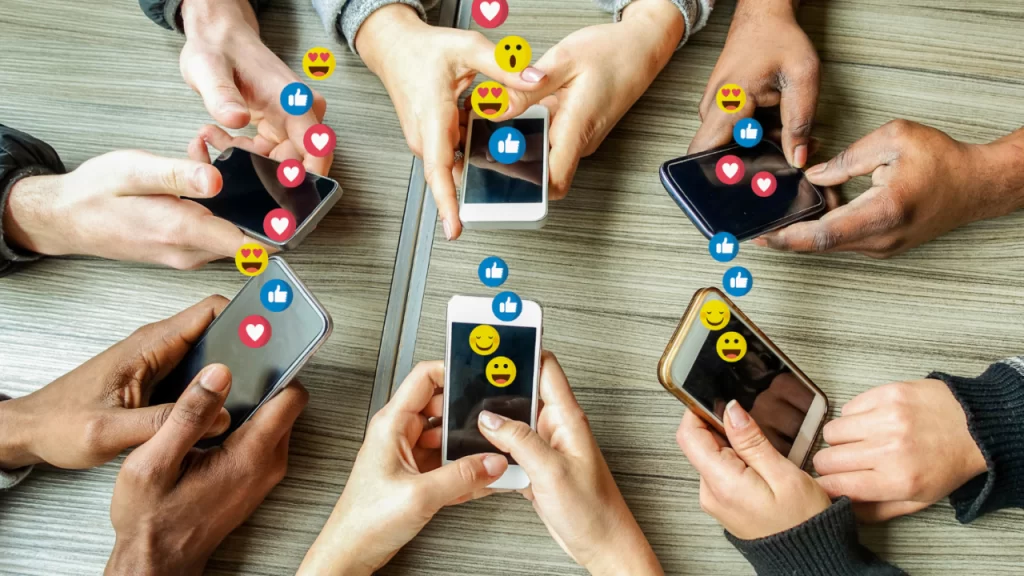Social media trends shape how we communicate and shop, but they can also be leveraged to promote noble deeds or raise awareness for important causes.
Social media may have increased the amount of people with whom one disagrees on political or sociopolitical matters; this perception is especially strong in South Korea, Singapore and Malaysia.
Social media is changing the way people communicate
Social media has transformed how people communicate, form relationships, access news and information, make decisions and form opinions. Businesses use this powerful medium to market themselves and engage with their target audiences – and marketers need to keep abreast of trends to reach these audiences successfully.
Social media’s positive effects are well-established. But its downsides have also been well documented. Some commentators fear that it spreads misinformation and creates echo chambers; other voice concerns over its ability to break trust between institutions and citizens, encouraging confirmation bias, or breaking trust altogether.
Some social media trends are designed to be entertaining and shareable, while others are intended to promote a cause or message. Such trends can have an immensely powerful effect on society and inspire positive change – for instance, both the Mannequin Challenge and Bottle Cap Challenge were virally successful by combining entertainment with serious issues; similarly “eco-friendly” and “sustainable” are no longer simply marketing buzzwords but have taken on lives of their own.
It is changing the way people think
Social media trends can have a tremendous impact on people as they rapidly spread across many platforms, often quickly becoming popular or not. Trends often depend on various elements like how easy something is to replicate, whether there’s an emotional or humorous component present and whether influential people contribute to its popularity.
Some individuals argue that social media sites have an adverse impact on society today, often as the source of misinformation and fake news, harassment and conflict. Others cite online harassment.
However, most people see social media as an effective tool for raising awareness and altering beliefs about sociopolitical issues as well as communicating with friends, family, and strangers – especially prevalent beliefs in advanced economies where most people use it regularly.
It is changing the way people shop
Social media trends can have an enormous influence on consumer shopping habits, as these viral campaigns often go viral due to being easy for large audiences to replicate and have emotional or humorous components that capture people’s interest. Companies that participate can increase visibility while expanding their target demographic and reaching a new market segment.
Trends on social media can also be used effectively to promote products. When used correctly, they can even result in an increase in sales if targeted accurately. It is essential to recognize authentic from fake social media trends as many companies utilize it for advertising their products while others may not always have good intentions in mind when using this form of promotion.
Social media platforms have become an invaluable source of customer interaction and business promotion, giving small companies an advantage to gain visibility, interact with their target market and establish lasting brand identities. Businesses must stay aware of trends on these networks so as to gain exposure, interact with customers, build a positive brand image and generate growth for themselves.
It is changing the way people interact
Social media provides students with an effective platform to find internships, navigate student loan debt battles and collaborate on international projects. Furthermore, this form of communication also gives students an avenue for raising awareness on sociopolitical issues they care about.
Customers today are becoming more wary of overly-edited content, making authenticity an absolute priority for brands. TikTok and BeReal’s popularity demonstrates this point; users preferring filter-free posts that speak directly to real life relatable experiences over filtering out filters like Snapchat. Businesses that can incorporate this trend into their marketing plans will build stronger customer relationships than ever.
Some individuals are concerned with how social media impacts interpersonal communication. Some worry that anonymized communications and spread of false or conspiratorial theories through social media fuel hate speech or conflict; other complain of being distracted from face-to-face interaction as a result of social media usage; this worry varies across countries and demographics.


